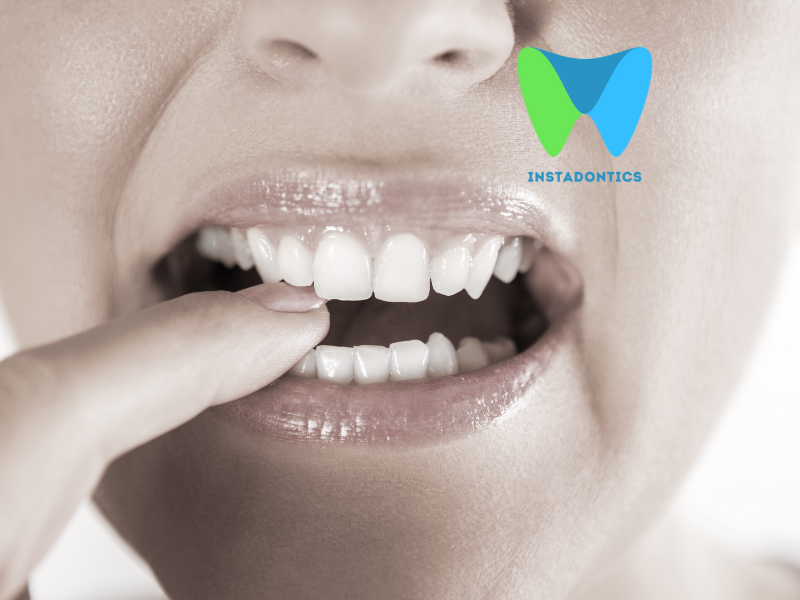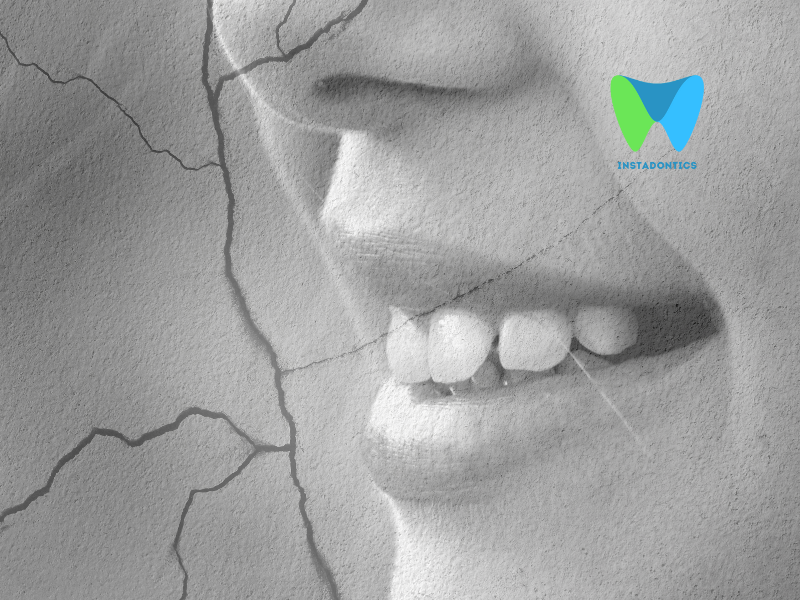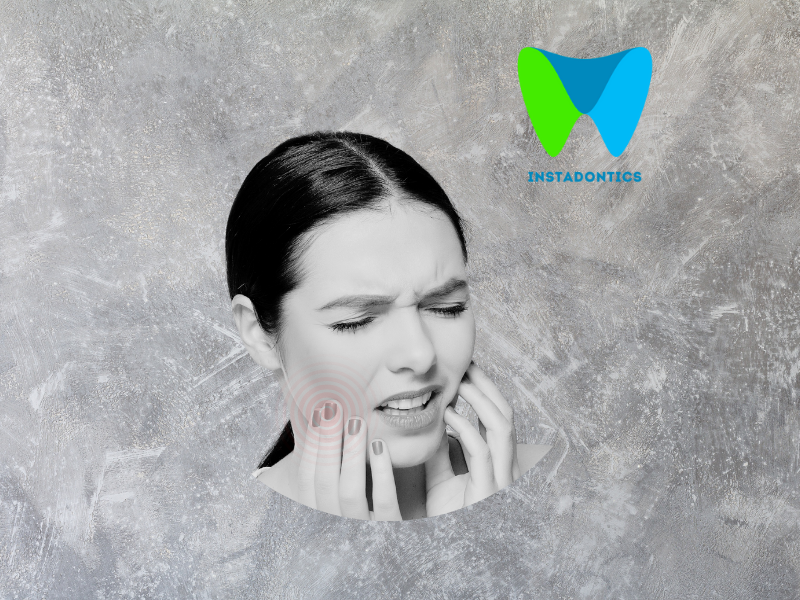Can a Toothache Cause a Headache? A toothache can significantly impact an individual’s quality of life, often leading to discomfort that radiates beyond the mouth. Yes, a toothache can indeed cause a headache, primarily due to the interconnectedness of the facial nerves. Conditions such as tooth infections or bruxism can trigger pain that manifests as headaches, making it essential to understand this relationship.
Individuals experiencing pain on one side of their face may notice it is accompanied by a headache, indicating a potential underlying issue. Infections, inflamed nerves, or jaw disorders can all contribute to this phenomenon. Exploring the connection between dental health and headaches can provide valuable insights into managing pain effectively.
This link emphasizes the importance of addressing tooth problems promptly to prevent further complications. Understanding how dental issues can lead to headaches can empower individuals to seek appropriate treatment sooner rather than later.
Understanding Toothaches
Toothaches can arise from various sources, influencing not only dental health but also potentially causing discomfort beyond the mouth. It is essential to understand the anatomy of a tooth and the common causes of tooth pain to address these issues effectively.
Anatomy of a Tooth
A tooth consists of several key components, each playing a role in its function and health. The outer layer is the enamel, which is hard and protects the tooth. Beneath it is the dentin, a softer tissue that supports the enamel and contains tiny nerve endings.
At the center lies the pulp, which houses nerves and blood vessels. Damage or infection in the pulp can lead to significant pain. The root connects the tooth to the jawbone, anchoring it in place. Understanding this structure helps in identifying the source of pain and the need for prompt dental intervention.
Common Causes of Tooth Pain
Tooth pain can result from various factors, including:
- Cavities: Decay that penetrates the enamel.
- Gum disease: Inflammation and infection of the gums.
- Cracked teeth: Damage that exposes nerves.
- Sinus infection: Referenced pain felt in teeth.
- Dental procedures: Post-treatment soreness.
Identifying the specific cause is crucial. For instance, cavities often present sharp pain when pressure is applied. In contrast, gum disease may cause a dull ache. Seeking professional evaluation can help in managing pain effectively and preventing further complications.
Headaches and Their Types
Headaches can vary significantly in terms of symptoms, duration, and underlying causes. Understanding the different types of headaches helps in identifying their triggers and managing pain effectively.
Tension-Type Headaches
Tension-type headaches are the most common form of headache. They often present as a dull, aching pain that feels like a tight band around the head.
Symptoms may include sensitivity to light and sound, but they are generally mild compared to other headache types. They can last from 30 minutes to several days.
Common triggers include stress, fatigue, poor posture, and inadequate hydration. Over-the-counter pain relievers like ibuprofen or acetaminophen are often effective for relief.
Migraines
Migraines are more intense and can last from a few hours to several days. They commonly affect one side of the head and are often accompanied by nausea, vomiting, or sensitivity to light and sound.
Individuals may experience warning signs, known as “auras,” which can include visual disturbances like flashes of light.
Triggers for migraines can vary widely and may include hormonal changes, certain foods, stress, and environmental factors. Prescription medications and lifestyle changes are often recommended for management.
Cluster Headaches
Cluster headaches are rare but extremely painful, often described as a burning or piercing sensation around one eye. They occur in groups or “clusters,” typically lasting 15 minutes to an hour.
These headaches can cause significant distress and are often accompanied by symptoms such as tearing or nasal congestion on the affected side.
Cluster headaches may awaken individuals from sleep and are often linked to circadian rhythms. Treatments include oxygen therapy and specific medications to manage both pain and frequency.
Connection Between Toothaches and Headaches
Toothaches and headaches may seem unrelated, but they share significant connections through referred pain and the involvement of the trigeminal nerve. This complex relationship can help individuals understand the underlying causes of their discomfort.
Referred Pain
Referred pain occurs when pain is perceived in one part of the body while originating from another. In the case of toothaches, pain can manifest in the head, particularly when the affected tooth is in the upper jaw.
The brain struggles to pinpoint the source of the pain. For example, discomfort from upper molars can be felt in the temples or forehead.
Additionally, conditions like sinus infections can exacerbate this pain, as the sinuses are located close to the roots of upper teeth. Identifying pain referral patterns can aid in diagnosing the root cause of headaches.
Trigeminal Nerve Involvement
The trigeminal nerve plays a critical role in linking toothaches and headaches. This major cranial nerve provides sensation to the face, making it instrumental in processing pain signals from the teeth and jaw.
When a tooth is affected by decay or infection, it can irritate the trigeminal nerve. This irritation may result in a headache, particularly if the pain is intense or prolonged.
The relationship is also evident in conditions like bruxism, where teeth grinding puts pressure on the jaw and irritates this nerve. Recognizing the role of the trigeminal nerve is vital for effective treatment and pain relief strategies.
Diagnosis of Oral-Related Headaches
Identifying oral-related headaches requires a thorough assessment of dental and medical history. The process often involves a combination of clinical examinations and advanced imaging techniques to determine the underlying cause.
Dental Examination
A dental examination is crucial in diagnosing headaches linked to oral health issues. The dentist will begin by reviewing the patient’s medical history and symptoms, focusing on any recent tooth pain or discomfort.
During the examination, the dentist will check for signs of tooth decay, gum disease, or other dental conditions. They may also evaluate the alignment of the jaw and any signs of bruxism, which can contribute to headaches. Specialized tests, like percussion tests on the teeth, can help identify problematic areas.
The dentist may also inquire about headache patterns, duration, and triggers to correlate them with dental issues. This comprehensive approach enables the dentist to form a clearer picture of the patient’s situation.
Imaging Techniques
Imaging techniques play a significant role in diagnosing oral-related headaches. If the dental examination suggests potential issues, the dentist may order X-rays or other imaging modalities.
Dental X-rays can reveal hidden decay, infections, or structural problems not visible during a standard examination. Cone beam computed tomography (CBCT) scans provide a three-dimensional view of the teeth and surrounding structures, offering detailed insights into conditions like jaw joint disorders.
In some cases, additional imaging, such as MRI or CT scans, may be warranted to rule out other causes of headaches. These techniques can help identify sinus issues or anomalies in the brain that could contribute to headache symptoms. By utilizing these methods, the healthcare provider can obtain a comprehensive understanding of the patient’s diagnosis.
Management of Toothaches and Secondary Headaches
Effective management of toothaches and their potential to cause secondary headaches involves a combination of pain relief, dental treatments, and lifestyle modifications. Addressing these factors can help alleviate discomfort and prevent future occurrences.
Pain Relief Medications
Over-the-counter pain relief medications can be effective for managing toothache pain. Common options include nonsteroidal anti-inflammatory drugs (NSAIDs) such as ibuprofen and naproxen. These medications not only reduce pain but also help decrease inflammation associated with dental issues.
For individuals with more severe discomfort, a dentist may recommend stronger prescription medications. It’s crucial to follow dosage guidelines to avoid adverse effects.
Some people may find relief through topical anesthetics, which can be applied directly to the gums. Options like benzocaine can numb the affected area temporarily. While these treatments are helpful, they should not replace professional dental care.
Dental Treatments
Addressing the underlying cause of toothaches is essential. Dental treatments vary based on the issue. For cavities, restorative procedures such as fillings can eliminate decay and alleviate pain. In cases of infection, a root canal may be necessary to remove damaged tissue and prevent further issues.
For individuals suffering from dental abscesses, drainage and antibiotics may be required. Consulting a dentist promptly is critical for determining the appropriate treatment.
If tooth pain is linked to jaw disorders or sinus issues, further evaluation may be necessary. Treatments such as nightguards for bruxism or sinus drainage techniques can also help manage symptoms effectively.
Lifestyle Modifications
Lifestyle changes can significantly impact the frequency and severity of toothaches and related headaches. Maintaining good oral hygiene is paramount. Regular brushing, flossing, and dental check-ups can prevent many dental issues.
Stress reduction techniques can also alleviate symptoms related to tension headaches, which may accompany tooth pain. Activities such as yoga, meditation, or deep-breathing exercises can help manage stress levels.
Diet plays a role as well. Reducing sugary foods and drinks can lessen the risk of cavities, while staying hydrated supports overall health. Avoiding hard or chewy foods may prevent additional strain on already affected teeth.
Prevention Strategies
Maintaining oral health is crucial for preventing toothaches and their potential to cause headaches. Two primary strategies can be employed: proper oral hygiene practices and regular dental check-ups.
Oral Hygiene Practices
Effective oral hygiene practices play a vital role in preventing toothaches. Individuals should aim to brush their teeth at least twice a day using fluoride toothpaste. This helps remove plaque and food particles that can lead to cavities and gum disease.
Flossing daily is equally important. It cleans between the teeth and removes debris that brushes might miss. Using an antibacterial mouthwash can further reduce plaque and bacteria.
Additionally, limiting sugary snacks and beverages can significantly minimize the risk of cavities. Drinking water frequently helps wash away food particles and bacteria. Proper hydration is also essential for maintaining saliva production, which helps protect teeth from decay.
Regular Dental Check-ups
Routine dental check-ups are essential in the prevention of tooth problems that may lead to headaches. A dental professional can identify early signs of cavities, gum disease, or other oral health issues.
Typically, individuals should schedule a dental visit every six months. During these appointments, professionals can perform professional cleanings and give recommendations for improving oral care.
X-rays may also be conducted to catch hidden issues beneath the surface. These proactive measures can help address potential problems before they become significant, thus avoiding painful consequences like toothaches that could trigger headaches. Regular check-ups ensure that one’s oral health is monitored effectively.
When to Seek Medical Attention
Identifying when a toothache may warrant professional medical intervention is essential for health. Certain symptoms can indicate serious health conditions that require immediate care.
Signs of Serious Conditions
Symptoms that may indicate a serious condition include persistent pain, swelling, or fever. If a toothache is accompanied by swelling in the face or neck, it could signal an infection that requires treatment.
Other concerning signs include difficulty in swallowing or breathing. This may suggest that the infection has spread significantly.
Additionally, if the headache associated with the toothache becomes severe or is accompanied by visual changes or neurological symptoms, it’s important to seek medical help. These symptoms may indicate conditions such as migraines linked to oral issues or broader systemic concerns.
Professional Health Advice
If a toothache persists for more than a couple of days or worsens despite home care, individuals should consult a healthcare provider. Pain that disrupts daily activities or sleep merits immediate attention.
Moreover, they should seek advice if there are noticeable changes in the mouth, such as abscesses or significant discoloration of the gums. Ignoring these signs may result in complications, potentially leading to systemic infections.
In all cases, if the individual experiences sudden onset conditions or worsening symptoms, timely consultation with a professional can ensure appropriate treatment and prevent further health issues.
FAQs: Can a Toothache Cause a Headache?
1. Can a toothache cause a headache?
Yes, a toothache can cause a headache due to the interconnected nerves in your head and face. Pain from a tooth infection, cavity, or jaw issue can radiate to other areas, including the head, leading to a headache.
2. Why does a toothache cause a headache?
- Shared Nerve Pathways: The trigeminal nerve, which supplies sensation to your teeth, jaw, and face, also connects to areas of the head. Irritation in one area can trigger pain in another.
- Referred Pain: Your brain may misinterpret the source of pain, causing a headache when the issue is actually dental.
- Muscle Tension: Dental problems like TMJ disorders or teeth grinding can strain jaw muscles, leading to tension headaches.
3. What dental problems can cause headaches?
- Tooth Infections or Abscesses: Inflammation and pressure from an infected tooth can radiate pain to the head.
- Bruxism (Teeth Grinding): Chronic grinding strains jaw muscles, leading to tension headaches.
- TMJ Disorders: Jaw joint issues can cause pain that spreads to the temples or back of the head.
- Impacted Wisdom Teeth: Pressure from impacted teeth can irritate nerves, causing headaches.
- Sinus Infections: Sinus pressure from infected upper molars can lead to headaches.
4. What type of headache is caused by a toothache?
- Tension Headaches: Caused by jaw clenching or teeth grinding.
- Migraines: Severe dental pain or TMJ issues can trigger migraines in some people.
- Sinus Headaches: Linked to sinus infections affecting upper molars.
5. How do I know if my headache is from a toothache?
Signs that your headache is dental-related include:
- Pain worsens when chewing or biting.
- Sensitivity to hot or cold foods.
- Swelling or tenderness around a specific tooth.
- Jaw stiffness or clicking (indicating TMJ issues).
6. Can a cavity cause a headache?
Yes, an untreated cavity can lead to tooth decay, infection, or abscess, which may cause referred pain in the head.
7. Can wisdom teeth cause headaches?
Yes, impacted or infected wisdom teeth can irritate nerves and muscles, leading to headaches.
8. Can TMJ disorders cause headaches?
Yes, TMJ disorders strain the jaw joint and surrounding muscles, often causing tension headaches or migraines.
9. Can teeth grinding (bruxism) cause headaches?
Yes, grinding or clenching your teeth, especially at night, can strain jaw muscles and lead to morning headaches.
10. How can I relieve a toothache-related headache?
- Dental Treatment: Address the root cause (e.g., fillings, root canals, or extractions).
- Pain Relievers: Take over-the-counter medications like ibuprofen or acetaminophen.
- Cold Compress: Apply to the affected area to reduce swelling and pain.
- Relaxation Techniques: Reduce stress to ease teeth grinding and muscle tension.
11. When should I see a dentist for a toothache and headache?
Seek dental care if:
- The pain persists for more than a day or two.
- You notice swelling, fever, or signs of infection.
- Over-the-counter remedies don’t provide relief.
12. Can a sinus infection cause both a toothache and headache?
Yes, sinus infections can cause pressure in the upper molars and head, leading to both toothaches and headaches.
13. Can stress worsen toothache-related headaches?
Yes, stress can lead to teeth grinding, jaw clenching, and muscle tension, all of which can cause or worsen headaches.
14. How can I prevent toothache-related headaches?
- Maintain good oral hygiene to prevent cavities and infections.
- Wear a nightguard if you grind your teeth.
- Treat TMJ disorders with physical therapy or lifestyle changes.
- Address sinus infections promptly.
15. Can a toothache cause a migraine?
Yes, severe dental pain or TMJ issues can trigger migraines in some individuals, especially if they are prone to them.
16. Can a toothache cause a headache on one side?
Yes, dental pain often affects one side of the face, leading to a one-sided headache.
17. Can a toothache cause neck pain and headaches?
Yes, TMJ disorders or severe dental infections can cause pain to radiate to the neck and head.
18. Can a toothache cause a fever and headache?
Yes, a tooth infection or abscess can cause fever, headache, and other systemic symptoms. This requires immediate dental care.
19. Can a toothache cause dizziness and headaches?
In rare cases, severe dental infections or TMJ disorders can affect the inner ear, leading to dizziness and headaches.
20. How long does a toothache-related headache last?
The duration depends on the cause:
- Temporary pain from grinding or clenching may resolve with rest.
- Pain from infections or TMJ disorders will persist until treated.
These FAQs provide clear, concise answers to common questions about the connection between toothaches and headaches, helping readers understand and address their symptoms effectively. 🌟🦷🤕



